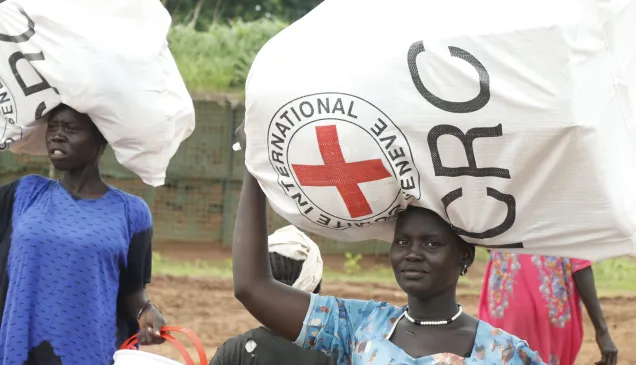Approximately one third of the people living in Deim Zubeir are displaced from Raja, Korogana and Sopo. They live in makeshift camps and came with very little. Some have moved up to three times because of the conflict. The ICRC has distributed items like tarpaulins, clothes, blankets, kitchen sets and jerry cans to assist the people.
18,000 people seek safety in a South Sudan village
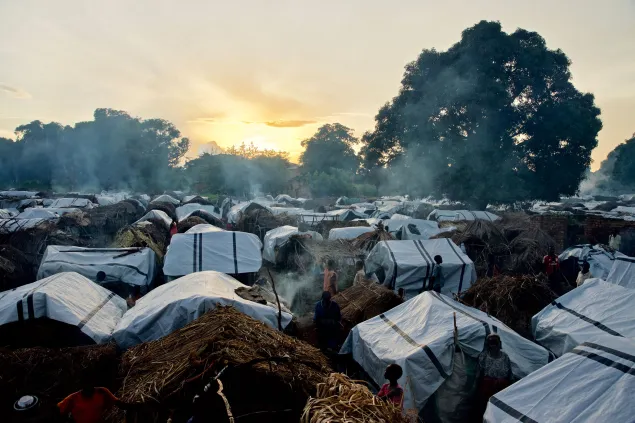
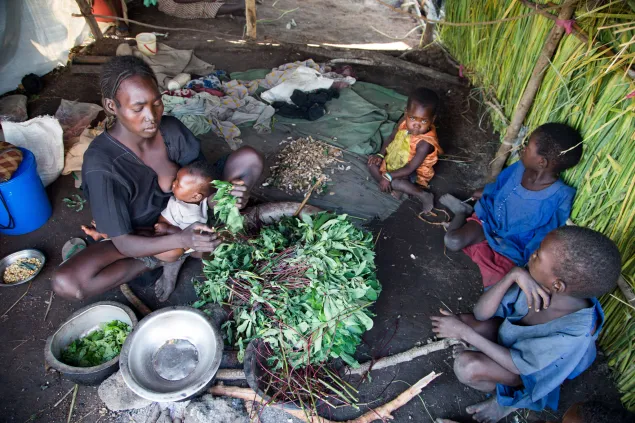
“Life is getting more and more difficult here, because my family is depending on me. Even when I am sick, I have to take care of my children and find food for them. I don't know where my husband is and there is no way for me to get information”, Belina Sabino says. She is preparing dinner for her five children.
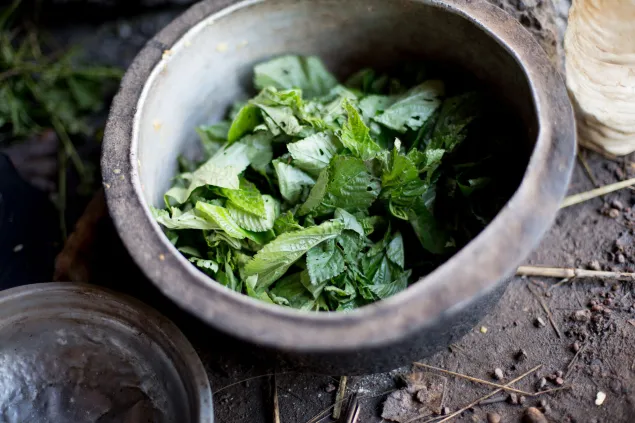
This is the dinner for six people.
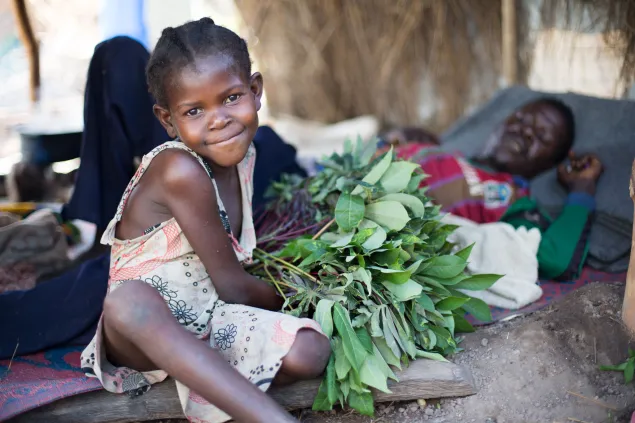
This batch of cassava leaves is the first meal Rita and her family will have today. “We will remove the leaves, put them in boiling water and add salt. We only have leaves to eat, because we have not received any other food”, her mother Fatra Omar explains. This was the day before the food distribution.
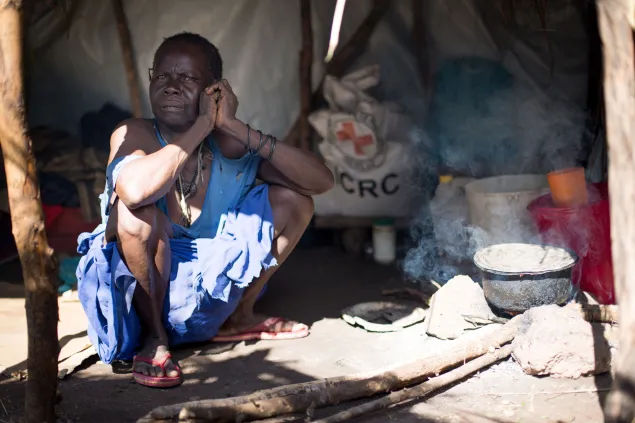
Madelena Mousa is from Raja. “I came here because of the conflict with my six children. The youngest one is three months old. I came walking from Raja and it took six days. This is the one place I knew where the security is good and this is why we came here. We are not planning to go back to Raja because it is still not safe. We will stay here”, she says.
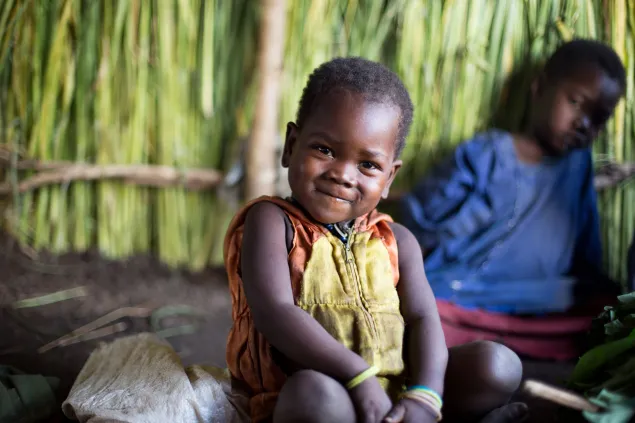
Kersto (3) came to Deim Zubeir with his mother and four siblings from Raja. His family has been registered by the ICRC and he will have porridge to eat the next day.
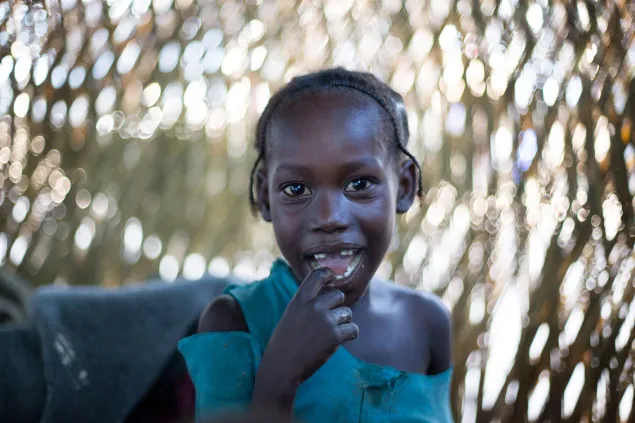
After Julia lost her tooth, she placed it in on top of their tukul (*the hut where they sleep). In their culture, they do this because they believe this way the tooth will grow back. Julia is shy to open her mouth, because other kids sometimes laugh at her because she lost her teeth. “I’m sure they will grow back”, she says.
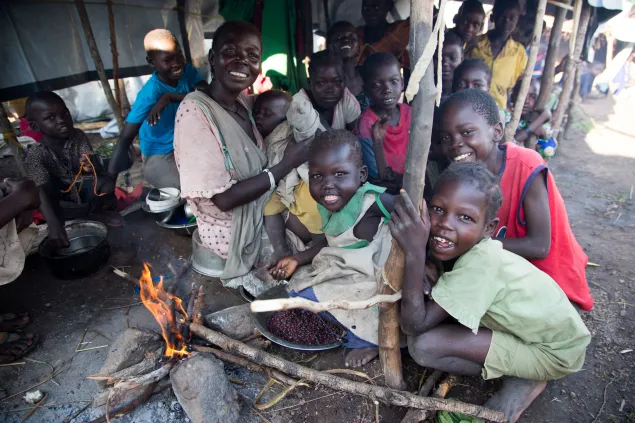
Madeline Martin has been given beans and other food from the ICRC and she is now preparing a meal for her children. Her daughter Montesena is very excited.
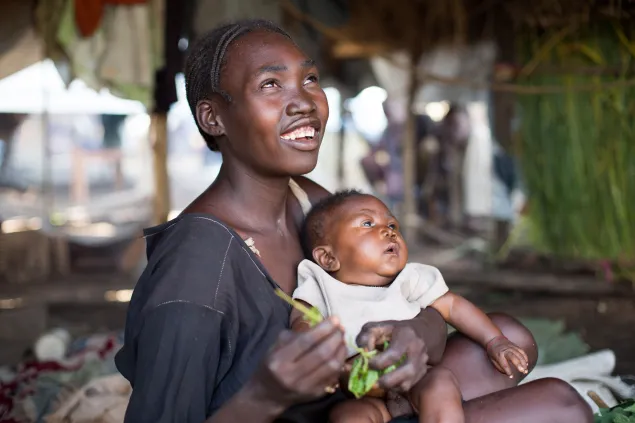
“I was pregnant when I had to flee with my children from Raja. We had to take a break every 2-3 hours and it took us 10 days to reach here. It was not easy for them, but we had no other option than to leave”, Belina Sabino explains. Her boy Lurni (2 months) was born 10 days after they arrived to Deim Zubeir.
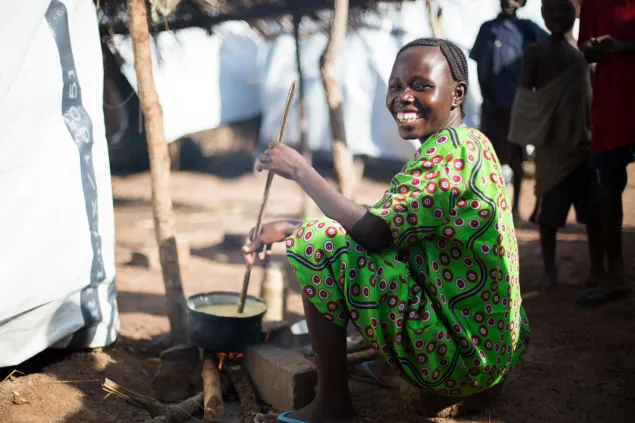
“I have not yet received food from the ICRC, but I have been given food from neighbors that already got their distribution. They gave it to us, because we didn’t have any food since the morning. I will not be able to give back to them, but our culture is so that if you have nothing, your neighbors will not leave you like that. If I have something another day, I will also give to someone who doesn’t have anything. Our culture is like this, because we know that tomorrow it might be you who have nothing”, Kelika Jahn explains. She has four children and is from Raja. Kelika and her family got their supply from the ICRC the next day.
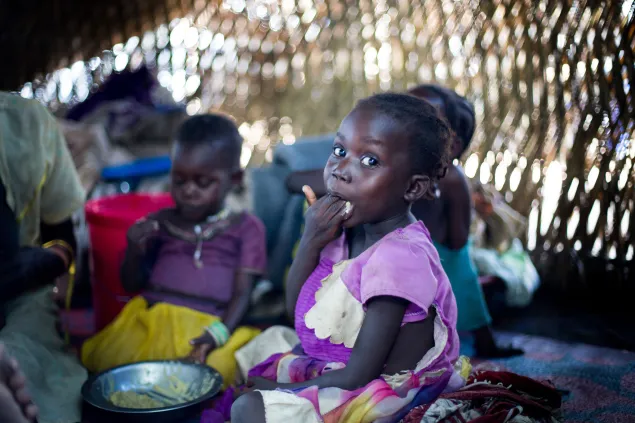
Katna Arkangelo is enjoying the porridge her mother has prepared after the food distribution from the ICRC. She is one of eight siblings who are sharing the food. “The food we have been given from the ICRC is good, but it is not enough”, her mother Dorina says.
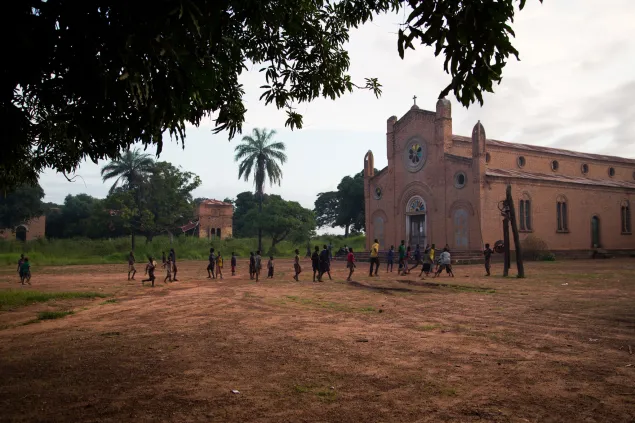
After dinner, kids in the village gathers to play football in front of the old church.
The ICRC distributed emergency food to 1,000 families in the village of Deim Zubeir in northwest South Sudan on August 10 and 11. The assistance will feed 6,000 people.
According to local authorities, Deim Zubeir is home to 36,000 people, but the community is now hosting 18,000 displaced persons, a state that is stretching food and water resources.
See also:

